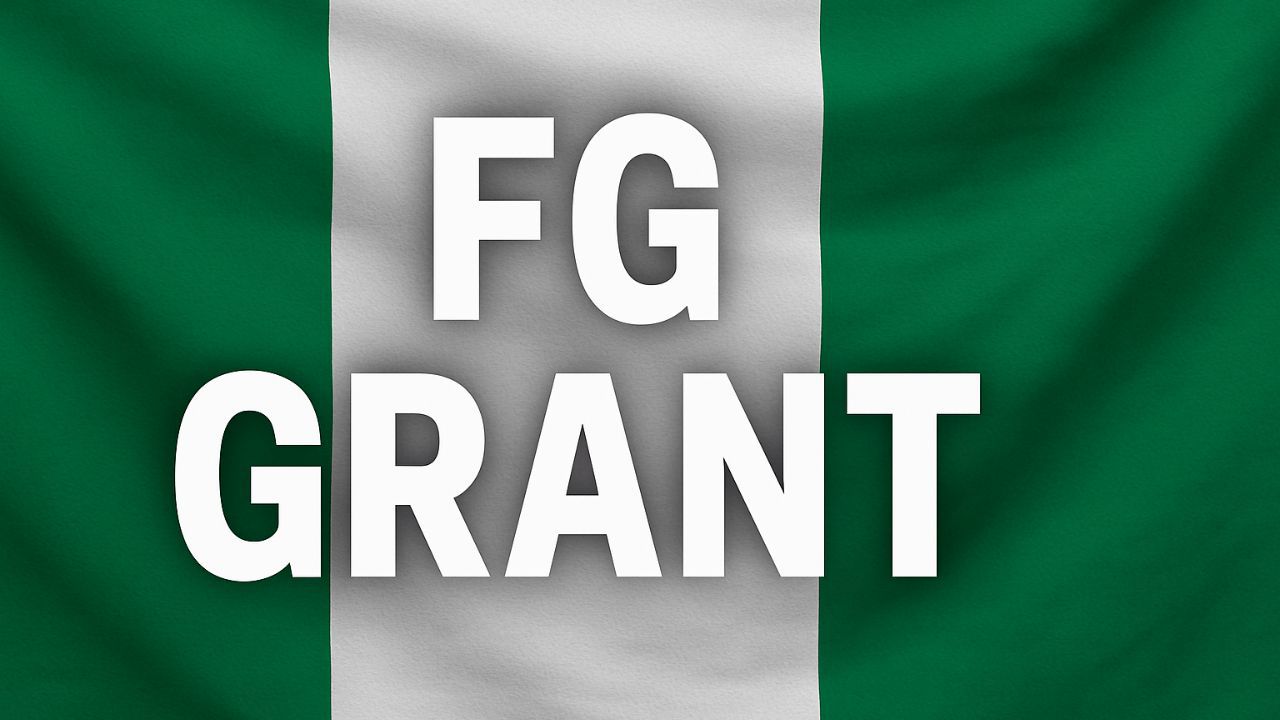
For years, Nigerian youths have complained that government grants and empowerment schemes exist only on paper. But 2025 is proving different. Under President Bola Tinubu’s administration, several real, accessible funding programmes are now open.
Multiple verified federal initiatives are disbursing funds to young Nigerians in business, tech, and creative industries. Below is a clear guide on where to apply, and how to qualify for the grants.
5 Major Federal Grants Open To Nigerians
1) YEIDEP — Youth Economic Intervention & De-Radicalisation Programme
YEIDEP is the Youth Economic Intervention and De-Radicalization Programme, a Nigerian government initiative to combat youth unemployment, poverty, and insecurity. It provides funding, skills training, and economic opportunities, particularly in agribusiness, to empower young Nigerians and encourage them to become entrepreneurs and contributors to national development.
According to reports, YEIDEP will disburse funds in multiple tranches and individual grants of ₦50,000–₦500,000 to enterprise startups and support, while the programme is linked to a larger $2.5 billion national youth intervention package.
Who Is Eligible?
All Nigerian youths aged 18 to 35 are eligible for the programme. However, interested applicants would have to wait for the next batch.
2) Nigeria Jubilee Fellows Programme (NJFP) — 12-month paid internship
The Nigeria Jubilee Fellows Programme (NJFP) is a Federal Government of Nigeria initiative funded by the European Union (EU) and implemented in partnership with the United Nations Development Programme (UNDP). It seeks to address the unemployment challenge by connecting talented Nigerian graduates with job placement opportunities in Host Organizations across the country by enabling beneficiaries to gain experience and build skills.
The 12-month internship pays a monthly stipend of ₦150,000 to selected graduates; UNDP is a partner, and the programme is reopening in a refreshed form (NJFP 2.0) with new portal windows announced in October 2025.
Who Is Eligible?
Any graduate who has completed their mandatory Nigeria Youth Service Corps (NYSC) can apply to become a Fellow with the required documentation. After application and documentation are approved, the applicant takes a series of tests – a computer-based aptitude test, a video submission, and finally a psychometric assessment.
Following a successful completion of these assessments, they will join the applicant pool where they will build their CVs and await a suitable match with a Host Organisation. The placement is based on a match between an available Host Organisation’s talent requirements and an applicant’s development needs, within a specific catchment area.
When a match is made, the onboarding and placement processes begin. When an applicant is invited by their Host Organisation to begin work, they become a Fellow. After their 12-month paid Fellowship, Fellows who are not retained by their Host Organisation or who do not find other means of employment may be offboarded into the Talent Hub for alums.
As an alumnus, you receive career guidance and support for an additional six (6) months in the Talent Hub.
RELATED: Nelfund 2025: How to Easily Apply and Get Approved for a Student Loan in Nigeria
3) SMEDAN Pitch Competition
A SMEDAN grant in Nigeria is a form of conditional financial support from the Small and Medium Enterprises Development Agency of Nigeria (SMEDAN) to help grow and develop micro, small, and medium-sized businesses. The ₦5 billion grant is designed to provide financial support to students with viable business ideas, enabling them to kickstart or expand their entrepreneurial ventures.
Who Is Eligible?
Eligible students are encouraged to apply through SMEDAN’s official channel. The application process involves submitting a detailed business plan and demonstrating the potential impact of the proposed venture. Successful applicants will receive grants to support their business activities.
RECOMMENDED: What Happens If You Die Owing A Loan In Nigeria?
4) Bank of Agriculture (BOA) – National Smallholder Farmers Fund
The Bank of Agriculture (BOA) National Smallholder Farmers Fund is a new $1 billion financing programme in partnership with the African Export-Import Bank (Afreximbank) to provide affordable credit to Nigeria’s smallholder farmers.
Who Is Eligible?
It is open to all farmers. The fund aims to close financing gaps by supporting farmers with loans for inputs such as seeds and fertilisers, mechanisation, and storage and logistics infrastructure. It also seeks to create structured market linkages to improve farmer access to buyers and processors. Farmers are encouraged to open an account on the Bank of Agriculture website.
By equipping farmers with access to capital and mechanisation equipment, the fund will enable increased productivity, value addition through processing, and stronger integration into national and continental markets.
5) FGN-ALAT Digital Skillnovation (FGN-ALAT) – grants and loans
The FGN-ALAT Digital Skillnovation Program is a unique opportunity for startups and SMEs to access grants. It is open to technology-enabled businesses in all sectors of the economy, but priority will be given to businesses in agriculture, retail, housing and property, clean solutions, transportation and logistics, data and infrastructure, privacy and security, and energy innovation.
Who Is Eligible?
It is open to tech-enabled businesses across any sector of the economy, with the priority sectors being agriculture, retail, housing and property, clean solutions, transportation and logistics, data and infrastructure, privacy and security, and energy innovation.
Only businesses at the seed or early stage will be considered for a grant. Applicants can get up to N500,000 in grants. The business should be in its early stages, demonstrating scalability and impact potential.
For loans, it is open to tech-enabled businesses in trade and commerce, healthcare, education, agriculture, and clean energy, and applicants can get loans of up to N5 million. However, the business should be in its early to mid-stage, demonstrating some track record and growth potential.
